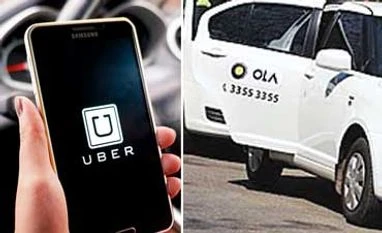Karnataka has accused app-based taxi aggregators Uber and Ola of operating without the necessary license and allowing cabs to ferry customers across Bengaluru and other cities in the state. Both firms have countered the statement saying that they have applied for license.
"We have applied for a license under the new scheme and have also sent our objections to the Karnataka transport department, but have not heard from them yet," said an Uber spokesperson. Ola too claims it has applied for a licence under the new Karnataka on-demand Transportation Technology Aggregators Rules 2016.
On Thursday, around 100 vehicles operating on both the aggregators platforms were impounded and penalised for violating norms, which include not carrying required documentation. Uber and Ola follow an asset light business model where they do not own the cars that operate on their platforms. The drivers own cabs with Uber and Ola channelling business to them through their apps for which they charge a commission.
Read more from our special coverage on "UBER"
Uber claims to have over 250,000 cars on its platform while rival Ola says it has over 350,000 drivers on its platform across India. Bengaluru's roads alone are expected to have 50,000 cabs operating on both platforms, making it one of the biggest markets for them in India.
Both companies have voiced their concerns on the government's scheme for app-based aggregators as one that suppresses innovation and makes their business models unviable. Uber, which has taken the legal route to challenge the Delhi government's proposed aggregator rules, could end up doing the same in Karnataka.
More From This Section
Karnataka wants all taxi aggregators to apply for licenses with the local transport authorities, put a cap on pricing which will be fixed by the state, install digital meters and receipt printers in all cabs and even install boards on top of cabs that get illuminated when a taxi is occupied.
There's a real scare that drivers will begin to abandon both platforms in fear of having their vehicles impounded by the transport authorities. Many of them who have taken loans to buy their vehicles are dependent on the business Uber and Ola provides them to pay their monthly and in some cases even daily instalments. Given the model of the business, drivers earn money only if they fulfil rides.
)